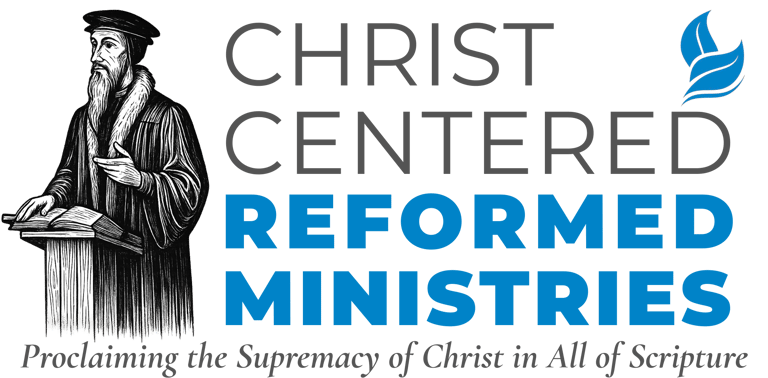The Canon of Scripture: God's Written Word
This is part 2 of a series of Articles through the Westminster Confession of Faith.
SYSTEMATIC THEOLOGY
Justin Hoke
4/25/20257 min read


Introduction: The Divine Gift of Written Revelation
There is perhaps no greater evidence of God's love for His people than His decision to speak to us. Not in mysteries or riddles that leave us guessing, but in clear, preserved words that guide us through this fallen world. The Westminster divines understood this profound mercy when they articulated the doctrine of Scripture in the Confession's opening chapter.
In section 1.2, they declare:
"Under the name of Holy Scripture, or the Word of God written, are now contained all the books of the Old and New Testaments, which are these: [lists 66 books]... All which are given by inspiration of God to be the rule of faith and life."
This statement may seem straightforward, even unremarkable to modern readers. Yet within these words lies a profound theological declaration about the identity, origin, and purpose of God's written revelation. In an age where authority is questioned and truth is considered subjective, we must recapture the confession's certainty about which books constitute God's authoritative Word.
The Sacred Collection: Identifying Holy Scripture
The confession makes a decisive statement by identifying "Holy Scripture" or "the Word of God written" as the 66 books of the Old and New Testaments. This wasn't merely a casual preference or denominational peculiarity. The Westminster divines were acknowledging what the church had recognized through the centuries—these specific books bear the unmistakable imprint of divine authorship.
The Old Testament canon, comprising 39 books from Genesis to Malachi, was firmly established by the time of Christ. Jesus Himself validated these Scriptures, referring to "the Law, the Prophets, and the Psalms" (Luke 24:44)—the threefold division of the Hebrew Bible. He treated these books as authoritative, often prefacing His teachings with "it is written" or "have you not read?"
Similarly, the 27 books of the New Testament from Matthew to Revelation were recognized as Scripture within the apostolic community. Peter acknowledged Paul's writings as Scripture (2 Peter 3:15-16), demonstrating that even in the first century, believers understood that God's revelation continued through the apostles' testimony to Christ.
What's equally significant is what the Confession excludes. The apocryphal books, though containing historical value and moral lessons, lack the divine inspiration characteristic of canonical Scripture. The Protestant Reformers rightly distinguished between these human compositions and God-breathed Scripture, returning to the canon affirmed by the early church.
The Divine Origin: Scripture as God-Breathed
The Confession doesn't merely identify which books are Scripture; it declares their origin: "All which are given by inspiration of God." This phrase deliberately echoes 2 Timothy 3:16-17, where Paul describes Scripture as θεόπνευστος (theopneustos)—literally "God-breathed".
This metaphor is powerful and precise. Just as human speech comes from the breath of our lungs, Scripture flows from the very breath of God. It is not merely "inspiring" in the sense of moving our emotions; it is "inspired" in the sense of having God as its ultimate source and author.
Yet God did not dictate Scripture mechanically, bypassing human faculties. As 2 Peter 1:20-21 explains, "holy men of God spoke as they were moved by the Holy Spirit." The divine superintendence preserved the authors' personalities, vocabularies, and styles while ensuring that what they wrote was precisely what God intended. Their words became His words.
This dual authorship—divine and human—explains Scripture's remarkable unity amid diversity. Written over 1,500 years by dozens of authors from various backgrounds and cultures, the Bible nevertheless tells one cohesive story of creation, fall, redemption, and consummation. Such harmony cannot be explained apart from divine inspiration.
The Authoritative Purpose: Rule of Faith and Life
The Westminster divines weren't content to identify Scripture and declare its origin. They also specified its purpose: "to be the rule of faith and life." This statement captures the comprehensive authority of Scripture over Christian belief and practice.
Scripture functions as our "rule" (κανών in Greek)—literally a measuring rod against which all claims to truth and righteousness must be evaluated. It establishes boundaries for doctrine, determining what Christians should believe about God, humanity, salvation, and eternity. Simultaneously, it charts the path of godly living, illuminating how believers should conduct themselves in every sphere of life.
This understanding gave rise to the Reformation principle of Sola Scriptura—Scripture alone as our final authority. The confession doesn't deny the value of church tradition, Christian experience, or reasoned argument, but it places these secondary authorities under Scripture's judgment. When conflicts arise between human opinions and biblical teaching, Scripture must prevail.
The confession's language reminds us that Scripture isn't given merely to satisfy intellectual curiosity but to transform both our thinking and our living. Its authority extends to both "faith" (what we believe) and "life" (how we behave). The biblical text doesn't simply inform us; it commands us.
Pastoral Implications for Today's Church
Confidence in Canonical Certainty
In an age where skeptics question the Bible's composition and contents, the confession's clarity about the canon reassures believers. We need not wonder which books belong in our Bibles. The same Spirit who inspired these writings also guided their preservation and recognition throughout church history.
This confidence isn't blind faith but reasoned trust. The canonical books authenticate themselves through their internal consistency, prophetic fulfillment, apostolic connection, and transformative power. As Calvin noted, Scripture carries its own self-authenticating authority, which the Holy Spirit confirms in believers' hearts.
Devotion to Scripture's Divine Voice
If Scripture is truly God-breathed, our response should be reverent attention. When we open the Bible, we're not merely studying ancient literature; we're hearing our Creator and Redeemer speak. This perspective transforms Bible reading from dutiful religious exercise into life-giving divine encounter.
Many Christians today suffer spiritual malnourishment not because Scripture is insufficient but because they neglect its richness. Regular, thoughtful engagement with the biblical text—reading, meditating, memorizing, studying—becomes not just a discipline but a delight when we recognize whose voice speaks through these pages.
Discernment Against Competing Authorities
The confession's emphasis on Scripture's authority equips believers to evaluate competing truth claims. Whether confronting secular ideologies, religious innovations, or personal intuitions, Christians have a fixed reference point by which to test all things.
This doesn't mean Scripture explicitly addresses every contemporary issue. Rather, it provides the theological framework, ethical principles, and spiritual wisdom needed to navigate new challenges faithfully. The confession's language about Scripture as our "rule" encourages humble yet confident application of biblical truth to all of life.
Unity Around God's Word
Finally, the confession's clear identification of canonical Scripture provides a basis for Christian unity. Despite denominational differences, believers who acknowledge these 66 books as God's authoritative Word share a common foundation for faith and practice.
This unity doesn't eliminate all disagreements—interpretive questions remain—but it establishes boundaries for legitimate theological diversity. Churches may differ on secondary matters while maintaining fellowship around essential truths revealed in Scripture.
Conclusion: Treasuring God's Written Word
The Westminster Confession's teaching on the canon reminds us what a precious gift we have in Scripture. God has not left us to grope in darkness or construct our own religious systems. He has spoken clearly, definitively, and sufficiently through these 66 books.
Our response should be heartfelt gratitude leading to attentive obedience. As the psalmist exclaimed, "Your word is a lamp to my feet and a light to my path" (Psalm 119:105). In a world of shifting shadows and uncertain paths, Scripture guides us toward truth and righteousness.
The confession's emphasis on Scripture's divine inspiration and authority doesn't diminish its practical value but enhances it. Because these words come from God Himself, they carry the power to accomplish His purposes in our lives—instructing, correcting, training, and equipping us for every good work (2 Timothy 3:16-17).
Let us therefore approach Scripture not as casual readers but as humble listeners, eager to hear and heed the voice of our God. For in these words, we encounter not merely information about divine things but the Divine Himself speaking truth in love to His people.
📘 Study Guide: The Canon of Scripture – God's Written Word
Based on WCF 1.2
✍️ Key Terms & Concepts
Term Definition Canon of Scripture The official collection of books recognized as God's inspired Word, consisting of the 66 books of the Old and New Testaments. Inspiration The divine act by which God breathed out His Word through human authors without error. Rule of Faith and Life The authoritative standard by which Christians measure all doctrine and practice. Self-Authenticating The quality of Scripture whereby it proves itself to be the Word of God through its own divine attributes. Apocrypha A collection of ancient writings not inspired by God and therefore not included in the canon of Holy Scripture.
📚 Scripture Readings
Luke 24:44 – Jesus’ validation of the Old Testament Scriptures
2 Timothy 3:16–17 – Scripture as God-breathed and sufficient for all good works
2 Peter 1:20–21 – Holy men spoke as they were moved by the Holy Spirit
Isaiah 8:20 – Testing all claims by the standard of God's written Word
John 5:39 – Scripture’s testimony to Christ
💬 Discussion Questions
Use these questions to encourage reflection and conversation:
What is the significance of having a clearly defined canon of Scripture? How does it safeguard the faith?
How do the New Testament writers themselves affirm the authority of other biblical writings?
What does it mean that Scripture is "God-breathed"? How should this truth affect our reverence for the Bible?
How can Christians discern and reject claims of supposed new revelations outside of Scripture?
How does the Bible serve as the "rule" for both our beliefs and daily living?
Why is it important that the canon is closed and complete? What dangers arise when this is denied?
🧠 Reflection & Journal Prompts
Encourage deeper personal growth through journaling:
“Do I treasure the Bible as the very voice of God, or do I sometimes treat it casually?”
“How has Scripture proven itself to be the final authority in my own life experiences?”
“In what ways am I tempted to seek spiritual truth outside of Scripture?”
“What practical steps can I take to root my beliefs and decisions more firmly in God’s written Word?”
🛠️ Practical Application
Daily Bible Reading: Begin a consistent reading plan through the New Testament, thanking God daily for the gift of Scripture.
Family Worship: Teach your family about the difference between the canonical Scriptures and the apocryphal writings.
Scripture Memorization: Commit 2 Timothy 3:16–17 to memory as a vital reminder of Scripture’s authority and sufficiency.
Apologetics Preparation: Practice explaining to a friend or group why Christians receive only the 66 books of the Bible as God's Word.
📌 Teacher Tips (for Sunday School Leaders)
Bring in the Physical Bible: Hold up a Bible during the lesson to emphasize its authority and sufficiency.
Canon Chart Activity: Create a visual timeline or chart showing when the Old and New Testament books were written and recognized.
Group Reading: Assign small groups to read Luke 24:44, 2 Tim. 3:16-17, and 2 Peter 1:20-21 aloud, then share insights on what these texts teach about Scripture.
Clarify Misconceptions: Address common misunderstandings about "missing books" or "lost gospels" gently and biblically.
Emphasize Christ-Centered Reading: Remind learners that all Scripture ultimately points to Jesus Christ as its center and fulfillment.
For Further Study:
The Westminster Confession of Faith and Catechisms – As Adopted By the Presbyterian Church in America
The Canon of Scripture by F.F. Bruce
Knowing Scripture by R.C. Sproul

